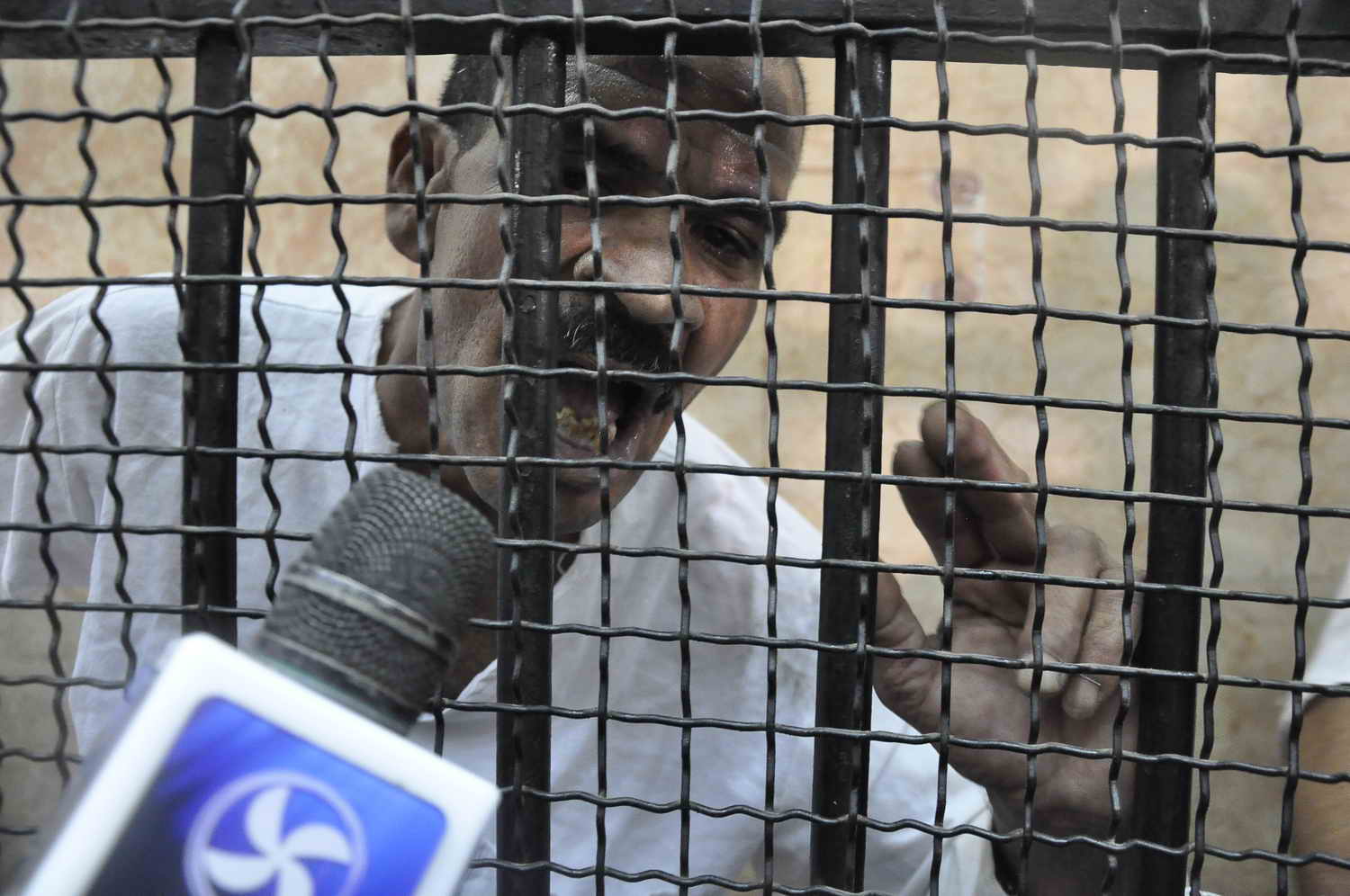Reuters
EL-AJRA, Egypt: The men gathered around the fire under a clear sky studded with stars. Youssef Ali had checked on his loaded Kalashnikov rifle as he prepared to spend another night in the desert, his home for the past six years.
“I don t sleep without my Kalashnikov next to me, said the 37-year-old, the fire illuminating his dark unshaven face and traditional Arab headdress. Ali, born when Sinai was under Israeli occupation after the 1967 Middle East war, is wanted by Egyptian police for smuggling arms into the Gaza Strip for Palestinian factions.
But he and a group of friends had come to the site in the desert for a tribal conference to take a stand against what they see as government injustice. He says poverty and unemployment drove him to take up the smuggling trade. The Egyptian police, through their heavy-handed treatment of the traditionally proud Bedouin, helped push him further into the life of an outlaw, deepening his hatred for those he holds responsible for his miserable situation: the rulers of Egypt who reclaimed Sinai from Israel in 1982. “I have known Egypt only since 1982, he said. Since then all I have known is fear, lies and injustice.
It is a common story among about 200,000 formerly nomadic Bedouin in northern Sinai, one of Egypt s poorest areas, where unemployment is endemic and basic services are dismal. It is from this same milieu that a group of bombers emerged, killing more than 100 people between 2004 and 2006 in a series of three bombings at Sinai resorts frequented by foreigners. The Bedouin complain of economic marginalization, police harassment and limited access to jobs in the lucrative tourism and petroleum sectors in Sinai, which produces a significant share of Egypt s oil from offshore fields and is dotted with resorts popular with tourists seeking sun, sand and diving. Jobs at the few privately owned factories in the region and senior posts in state institutions are usually reserved for workers from the Nile Valley, as part of a policy to increase the population of Sinai and integrate it with the rest of the country, analysts and human rights groups say. The government says it treats all Egyptians equally and points to a national 1994-2017 plan for Sinai that envisages the development of 100,000 hectares (250,000 acres) of agricultural land in northern Sinai, known for olive and peach farms. Tribesmen say the plan is nothing but hot air.
“People from the Valley come and take everything here, said Mohamed Abou Sheikha, an unemployed 21-year-old, as one of the men threw another log on the fire. We are given the leftovers.
In April, police killed two Bedouin near a checkpoint in northern Sinai. The Interior Ministry said the men exchanged fire with police, but tribal leaders say they were unarmed and were shot while trying to take a side route to avoid the checkpoint, fearing police harassment. The incident highlighted the long-simmering tension between the authorities and the Bedouin, whose loyalty to Cairo many Egyptians doubt because of their exposure to Israelis between 1967 and 1982, and their reputation for ignoring state authority. One day after the shooting tribesmen took to the streets, setting fire to dozens of tyres. Hundreds also held a two-day sit-in on the border with Israel, demanding that the government address their grievances. Leaders of the protest later issued a list of demands including the trial of the officers responsible for the shooting and the retrial of hundreds of men convicted in what the tribes call fabricated drugs and arms smuggling cases.
“If our demands are not met by July 1, we will start an open-ended sit-in, said Mohamed el-Menei i, a tribal leader at the conference last week at el-Ajra border area. We will not budge.
Neither the Interior Ministry in Cairo or the governor of North Sinai were available for comment. The state-run newspaper Al Ahram said last week one Bedouin convict was granted a retrial and acquitted. But one retrial is unlikely to be enough for the tribesmen. Many of those attending the Ajra meeting, held at a large tent in the desert, said their family members had been detained without charges in the sweep followed the 2004-6 bombings.
“Free our prisoners, read one banner at the conference. Another poster featured the face of a Bedouin man: We want to live, read the slogan next to his melancholy face. Human rights groups say authorities rounded up between 2,500 to 3,000 Bedouins, mostly without charges. Egypt later blamed the attacks on a militant group of Sinai Bedouin with Palestinian connections called Al Tawhid Wal Jihad, Arabic for One God and Jihad . Many analysts and political activists believe that, while the attacks could be partly attributed to the Arab-Israeli conflict, they were also a result of deep frustration among the local population.
“The government can and should alter a development strategy that is deeply discriminatory and largely ineffective at meeting local needs, the International Crisis Group think-tank said in a recent report on Sinai. But for Moussa, a 38-year-old fugitive, the day when such a change takes place may come too late.
If they [police] catch me, it is the end of my life, he said calmly. They took my 12-year-old daughter hostage for 25 days so that I would surrender, but I didn t.
“My life is only protected by this, he said, lifting a blue scarf in his old truck to uncover a loaded Kalashnikov rifle. Additional reporting by Yusri Mohame.


